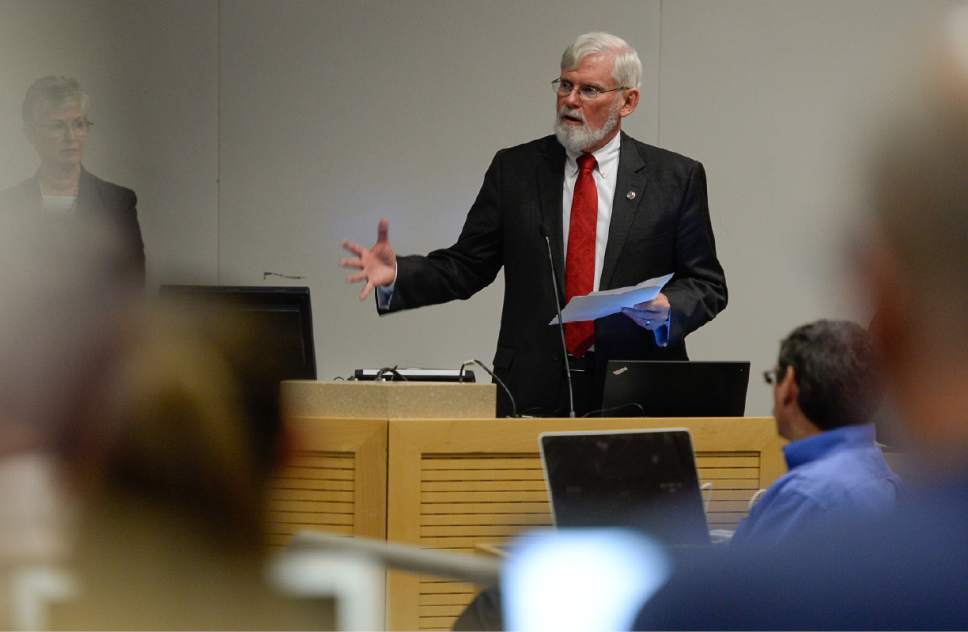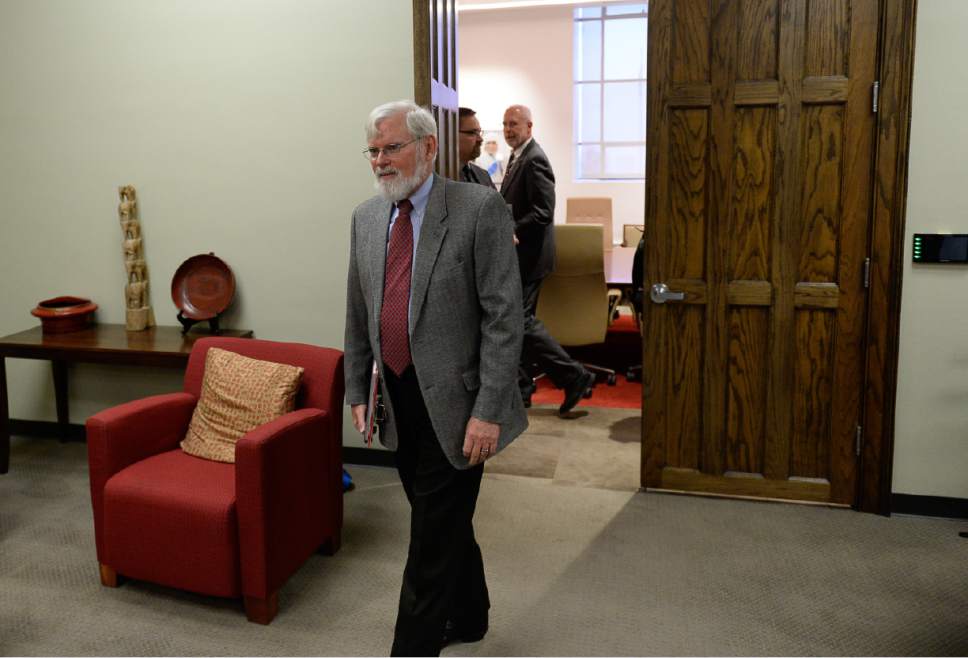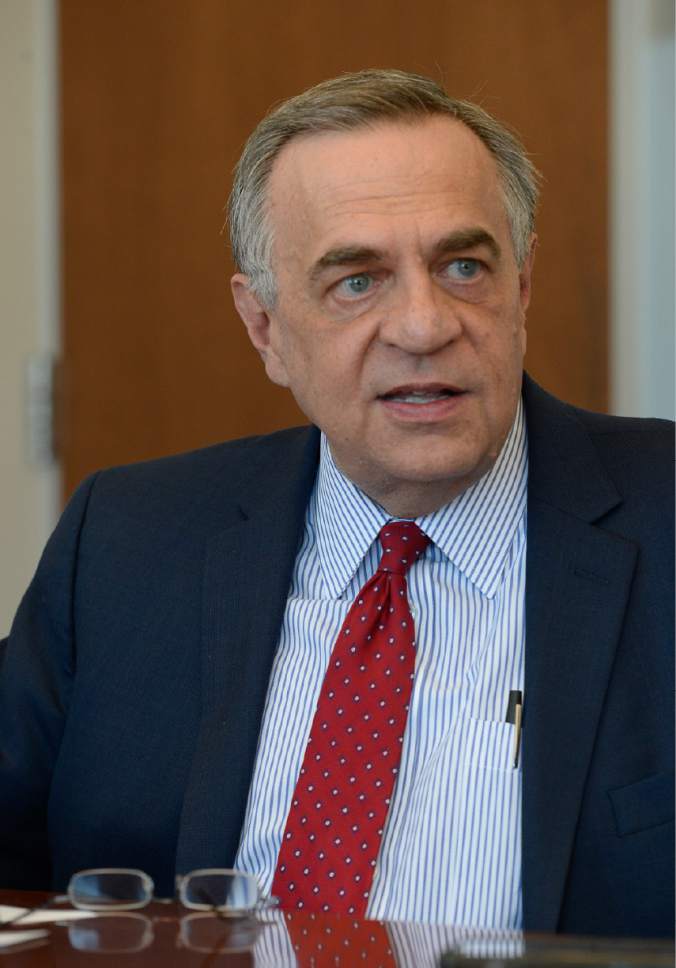This is an archived article that was published on sltrib.com in 2017, and information in the article may be outdated. It is provided only for personal research purposes and may not be reprinted.
Higher Education Commissioner Dave Buhler said he doesn't believe the recent upheaval at the University of Utah will deter people from applying to be the school's new president.
The U. "is a great institution that has many positive things," Buhler said Wednesday at a meeting with The Salt Lake Tribune's editorial board. "I'm sure there will be questions raised … [but] I'm not worried at all that it'll be hard to attract good candidates."
Last month, the Board of Regents began what Buhler said will be an eight- to 12-month process for selecting a replacement for current U. President David Pershing. He announced his departure after weeks of turmoil at the school stemming from the controversial firing of Huntsman Cancer Institute CEO and Director Mary Beckerle.
Faculty members and the Huntsman family criticized Beckerle's removal, sparking protests and a public debate calling into question the relationship and power dynamics between U. administrators and the Huntsman Cancer Foundation, which has supported cancer research and treatment efforts at the U. with hundreds of millions of dollars in philanthropic donations.
Beckerle quickly was reinstated and Vivian Lee, CEO of U. Health Care and vice president for U. Health Sciences, soon resigned. A. Lorris Betz, Lee's predecessor, then was hired to serve in her stead while the school seeks a permanent replacement.
U. officials have said the search for Lee's successor will run parallel to the search for a new U. president, to give Pershing's successor ultimate say over who serves as vice president for U. Health Sciences. A search committee, made up of 20 to 25 individuals, will be in charge of selecting the finalists in the presidential search, Buhler said.
Those committee members will be named this month, Buhler said, and they will hold two public meetings in the late summer and early fall to gather input on what attributes are important in a new president.
After those meetings, he said, the committee will generate a job description to be disseminated nationally.
Pershing has no shortcomings as president that the Regents want to address with his replacement, he said.
"I have the greatest respect for David Pershing," Buhler said. "He's been a great president, in my estimation."
Buhler said he expects 40 to 60 applicants for Pershing's post — some of whom likely will work for the U. already — and the committee will winnow that to 10 to 15 candidates for subsequent interviews.
Three to five finalists chosen by the committee will then meet with students, faculty and trustees, who will offer their feedback, Buhler said. The Regents then will pick the new president.
The whole process will take eight to 12 months, Buhler added, saying they want to take the time to find the right candidate, "somebody who can be successful externally but has internal credibility."
Editor's note • Paul Huntsman, a son of chief Huntsman Cancer Institute benefactor Jon Huntsman Sr., is the owner and publisher of The Salt Lake Tribune.
Twitter @alexdstuckey







